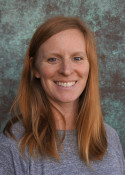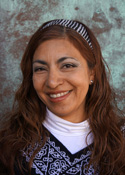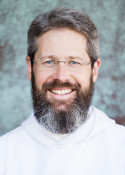FROM THE RECTOR
The Complexity of Being Human
This past week, following the death of George H.W. Bush, there has been a lot of attention given to the life of a former President, Vice President, CIA Director, oil company Executive, Yale University 1st baseman, WWII veteran, and life-long Episcopalian. (I wonder if he will be the last “Episcopal” President, but that’s a wondering for another day.)
As is often the case, at our Wednesday 9am Eucharist in the Chapel, the homiletical conversation that followed the readings of the day touched on the events of the week. And as part of that conversation we talked about George H.W. Bush’s funeral, what has been said about him over the course of that past several days, and how much of it focused on his practice of writing thank you notes, the relationship he developed with Bill Clinton, who beat him in the 1992 presidential election, and, in general, his decency.
In our circle in the chapel, the question was then asked—but what about the rest? Why aren’t we reading or hearing more about his failures, where he got it wrong, times when he was responsible for the suffering of others? And then, why is it that at funerals, and other times when we remember someone’s life, that we only speak about their good characteristics? Why does it seem so hard to talk about all that they did?
It was at that point that one of the very wise members of our congregation spoke. She shared about her husband’s death, now many years ago. And while she does still remember his faults, and that they had differences, this wasn’t what was shared at the funeral, and it hasn’t been what she has held onto since he died.
What she continues to remember and holds close are the actions and intentions and characteristics that caused her and many others to love him. When she said this, something opened for several of us, a way of remembering not just to keep ahold of the past, but also as a practice for living well in the present.
Perhaps that’s why when people die our eulogies, remembrances and homilies are often focused on the good that they did. It’s not simply about refraining from speaking ill of the dead. And I don’t believe that it’s about burying the pain, or pretending that the suffering didn’t happen—though that happens as well.
I wonder if when we come to the limits of our mortality we look for the love, faith, hope, compassion, and justice in others not as denial of their shortcomings, falsehoods or sins, but because as the ones left behind in the midst of the complexity of being human, we are looking for guideposts to the Good.
Peace,
Phil+
From the Associate for Ministry Development
 The Gift of Attention
The Gift of Attention
In the last year, I’ve had the benefit of hearing from some newcomers about their first experiences here at All Souls. As most things go, there has been a range: they have been both extremely positive and some encounters have presented some hard truths about how some people have experienced our community. In the fall, I presented my findings to our Ushers and to our Greeters, but as I have continued to see some gaps in how we greet new folks, I thought maybe I should open the conversation to the larger church community. While it’s true we have Greeters assigned at each service, it is all of our responsibility to welcome new people into our space. Here’s why.
For starters, Because of location in the pews or because they are welcoming other new folks, Greeters can’t always say hello to each new person. Second, and more importantly, it’s on all of us to be the open arms of Jesus to each other. One of the ways this can play out is in the gift of our attention. There is a certain kind of ease about giving tangible gifts to each other, especially in this season of the year. It is much more difficult to give of our time and attention. And, I think the gift of our attention is the kind of counter-cultural gift we are called to give each other and that we can give each other. Two things come to mind on this point. The first is Simone Weil’s line about attention and prayer, specifically that “absolutely unmixed attention is prayer.” Giving our attention to others is a way of praying for them. But I also think of this poem by Ada Limon.
A Name
When Eve walked among
the animals and named them—
Nightingale, red-shouldered hawk,
Fiddler crab, fallow deer—
I wondered if she ever wanted
them to speak back, looked into
their wide wonderful eyes and
whispered, Name me, name me.
It’s hard for me to sink into the meaning of this poem without tears in my eyes and an ache in my heart. People walk in the doors of a church for so many reasons –– some want a quiet space to retreat and be left alone — but many walk in hoping to be seen. While we can’t know why a person walks in these doors, we can give them the gift of our attention, and make sure that they feel welcome. This can be done in simple ways like, introducing yourself to folks you don’t recognize. If someone is standing alone in the Narthex with coffee in their hands, they (very likely) want someone to talk to them. Let’s be real: you don’t stand in the Narthex with coffee in your hand if you are hoping to quietly slip out. It may feel vulnerable for you to reach out, but it generally feels much more vulnerable to be by yourself in a new community. It is our job, collectively, to look for and to notice these moments in others, and respond.
So, as I said above, I received some feedback this past year that I’d love to pass on with the hope that this will augment the gifts of attention that we can give to those who come in our doors seeking. Here it is:
- When you come in to the church, try to sit towards the center of a pew so that others can slip in on the sides. As you well know, it’s pretty uncomfortable (not to mention inhospitable!) to make folks have to crawl over you to get a spot on a pew. If you’re able, leave the ends for others.
- Notice who is sitting on your pew with you (or behind and in front of you). Some of the most awkward moments are those in the pews just after the service has ended. Break that awkwardness by saying hello to those you don’t recognize around you. Ask them their name, how they’re doing today, how long they’ve been coming here, or if they have a history with the Episcopal church, or ???
- On that point, I heard a story of a newcomer this summer who got “locked” in her pew. She was sitting in the center of the pew and after the service the people to her right and left stood and started conversations with those around them, but nobody was talking to her, leaving her stuck in the pew! Pay attention to these sorts of moments, and be aware of those around you and in your pew.
- Direct newcomers to the blue sheet. This has all the information they could possibly need to know what’s going on around here.
- And, as I mentioned before, go out of your way to chat with people who appear to be alone, especially if they are lingering in the Narthex or in the Nave (before or after the service).
These points are specific, but I’m sure we can imagine plenty more ways to give the gift of our attention to the stranger among us. As it’s Advent and there are many newcomers walking in our doors for the first time, let’s expand the limits of our attention and really see these others around us.
– Emily
Won’t you be my neighbor?
 But seek the welfare of the city where I have sent you, and pray to the Lord on its behalf, for in its welfare you will find your welfare.
But seek the welfare of the city where I have sent you, and pray to the Lord on its behalf, for in its welfare you will find your welfare.
– Jeremiah 29:7
On any given Sunday, I walk two to three blocks to get to All Souls, as I imagine most of you do too. In my rush to find the closest parking spot and to get to the service on time, so I can get in a prayerful mode, you know what never occurred to me? To actually get on prayerful mode as I drive to the neighborhood, and as I walk its streets. It never occurred to me to pray for our neighborhood.
This past Summer, the Evangelism committee invited members of the Parish to a series of Neighborhood Prayer Walks. On three warm Summer evenings, we met at All Souls, and we walked together around the neighborhood in silence, noticing the spaces and the people around us and praying keeping open hearts and open minds to God’s presence. We made a couple of stops along the way to read Scripture or poems to inspire us, and continued on our way. At the end of each walk, we shared our thoughts and experiences with each other.
Walking and praying for the places that usually go unnoticed on our way to All Souls was inspiring. As we prayed and wondered about the people who live in our neighborhood, one thing that came up for all of us was an awareness of the people who work in the neighborhood, the waiters and waitresses at the many restaurants of the “Gourmet Ghetto,” the people who work at Safeway, the people who clean the homes in the area, who work in their gardens… We shared a sense of gratitude for their work, and a desire to pray for them, and for the many people in the service industry whom we encounter every day.
This Advent, as we get ready to receive the One who chose to walk among us, we invite you to consider Neighborhood Prayer Walks as a spiritual practice. Pray as you walk to All Souls. Pray as you commute to work or school. Pray for the people you see, and for those you might not see, but who make the neighborhood. Pray. Listen. Wait.
Peace,
Toni Martinez Borgfeldt
You can find leaflets with ideas and guidelines for Prayer Walks on the pews through Advent. And if you would like to experience a Prayer Walk around All Souls, join Madeline Feeley this Sunday, Dec 9th, after the 11:15 service.
Poetry for Advent
i am in love
with the empty church
an hour before the service
while the chairs are still stacked
and the coffee just begins to bubble.
the altar is covered in a blue cloth,
the spotlight is off.
jesus
has breath held,
hoping the guests arrive.
we row the chairs,
stack the hymnals.
they begin to enter,
pressed pants and sparkly shoes.
good morning.
a small hand in a larger, rougher one.
a cane scrapes the floor.
a gorgeous hat,
a wide smile.
these weeks before christmas
we say we are waiting
for the light
to be born into the world,
for the first cry,
the infant sigh.
but mornings like this I think
the light is already here.
we are waiting til we’re ready
to open our eyes.
St. Nicholas’ Feast Day!
Today is the feast day of St. Nicholas! We’ll be celebrating this Sunday — leave your shoes in the Narthex (church foyer) before each service, and come back to find some extra joy and merriment when you return!
Advent Wreathes
Did you miss the Advent festival? There are more Advent wreath forms, candles, and little books of prayers, poems and music to help guide your reflections at home. Pick them up on Sunday! And, if you’re looking for some help learning the music, recordings are available here.
Advent Ingathering
December 9: Braid Mission Cards of Hope
Braid Mission is a ministry of the Diocese of California reaching out to youth in foster care.Through the Cards of Hope program, All Souls provides holiday cards to foster youth, ages 7–13. These cards let individual children know that they are remembered, loved, and cared for. Find more information here.
What you can bring and place in the bowl in front of the altar before services:
- Holiday card(s) with a message to foster youth wishing them well and letting them know you are thinking of them
- Gift cards (for example, Target or Amazon)
ADVENT SERIES: STILLNESS, SONG AND STORY
December 12, 19
This Advent we are once again keeping our communal practice simple. For the first three Wednesdays in Advent we will be gathering for a soup supper in the Parish Hall at 6:00 pm. At 6:45 pm we will enter a candle-lit church for a Taizé service. Icons will be set up around the space, we will chant, keep silence, hear scripture, and pray. Similar to our 12 noon service on Good Friday, a parishioner will offer a short reflection each week. If you can bring soup or bread, please sign up here.
EFM
If you are interested in diving deeper in your study of the Bible and of your faith-life, you might be interested in joining the next round of EFM (Education for Ministry). For more information see Jane Vandenburgh, jvandenburgh@mac.com or Stephen Southern, stpaso@mac.com. New classes start in January!





